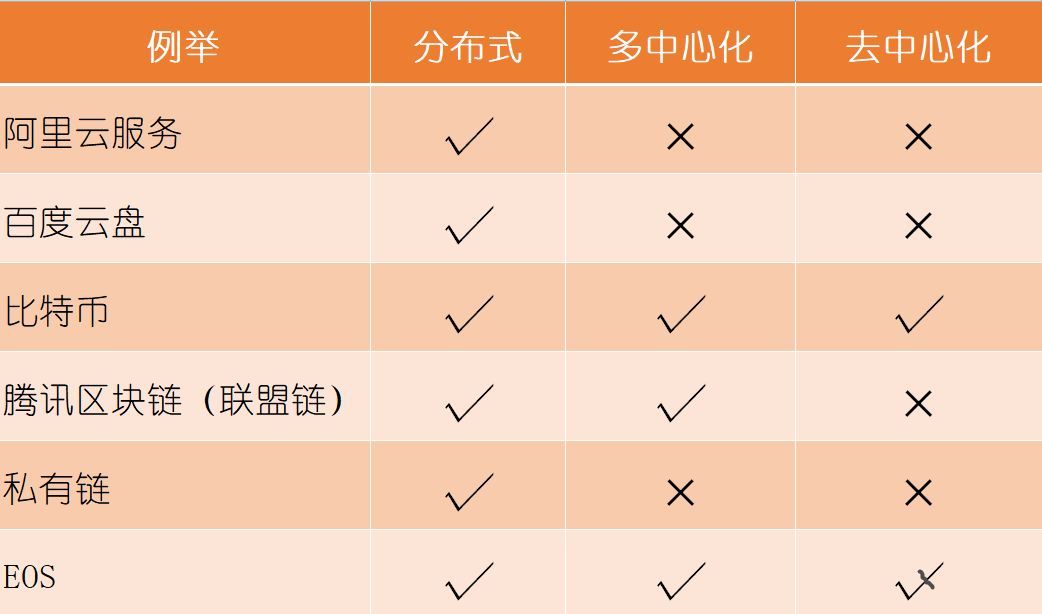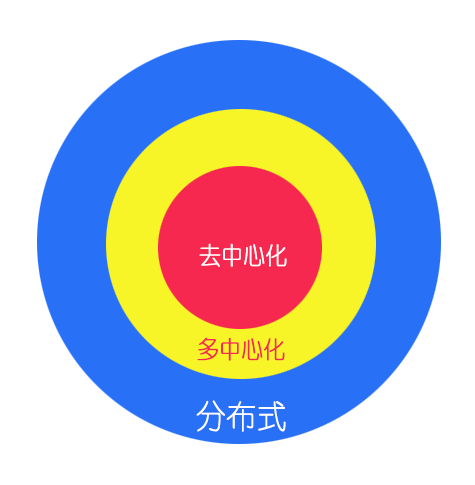Popular science | Is distributed, decentralized, multi-centralized the same thing?
A truck of bricks needs to be moved to the construction site efficiently and quickly. The foreman called for a large group of workers to move. Each person only needed to move a few pieces per trip, and it was soon finished. The task posted by the foreman is called a " distributed " task.
Twenty-one workers were lazy and gathered around to play the handkerchief game. According to the rules, everyone may be put on the back of the handkerchief, and everyone may need to perform a show. Everyone feels fair, because no one can cheat with so many people staring at it. This is " multicentricity ".
There is a river next to the construction site with fish in it. Anyone can come to the river to fish at any time. The fishermen can also exchange and sell their caught fish. They can freely live in this river. Fishing is " decentralized ".
In the field of blockchain, we often see the three words distributed, decentralized, and polycentric. They seem similar, but they are easy to confuse. Are they the same thing? If not, what's the difference?
- Linked US stocks fell again, BTC pullback sentiment strengthened
- Understand the difference between token financing and equity financing
- Analysis: Ethereum, the largest "air coin" in the industry?
In fact, this is likely to be related to the understanding of the blockchain and the accuracy of the views on many projects, or perhaps a word difference, will make people miss the opportunity.
01 definition

Decentralization: In contrast to the concept of "centralization", in a decentralized system network, each participant (node) has an equal and free relationship, and no one depends on whom. This is like a party of friends. You can choose not to speak, or you can choose to leave midway; centralization is like a meeting of leaders, all relying on the leadership's instructions and arrangements at the meeting.
Multi-centralization: Similar to decentralization, an equal network composed of multiple central nodes may require and restrict the participation and withdrawal of nodes. This is like an EOS node , which must meet certain requirements and provide certain software and hardware facilities before it can become a candidate node.
Distributed: Distribution can also be said to be decentralized. Nodes are decentralized, and distributed network nodes are interconnected. When any one node fails, other nodes can continue to work. Therefore, this network is more reliable than a single node. such as:
- Today's cloud computing service providers provide computers in multiple regional computer rooms in series to provide: distributed servers, storage, application software and other services, which are reliable, stable, secure, capable of supporting large-scale network tasks, and flexible pay-as-you-go.
- The 12306 train ticket booking website may need to withstand more than tens of billions of visits before and after the Spring Festival. Using an excellent distributed architecture network service, the servers are located in the north and south of the river. Not only are users across the country fast, but they can also be secure and stable. Handle huge train ticket enquiries and orders.
02 Is "distributed" necessarily "decentralized"?
Because both distributed and decentralized can be used for blockchain applications , many people think that distributed must be decentralized. In fact, it's not. Distributed services. As mentioned in the previous example, the 12306 train ticket booking website uses distributed network services. Is its service a decentralized service? Obviously not.
03 Is "polycentric" necessarily "decentralized"?
It ’s not. There are many conditions for multi-centers, such as alliance chains and multiple central nodes. However, many people do n’t particularly pay for its security and reliability. Although they believe that multi-center alliance chains are very efficient, the nodes are limited. And there are not enough nodes, not enough freedom, not as powerful as decentralization.
However, some people say that multi-centralization is a relatively good balance of "impossible blockchain triangle" (scalability, decentralization, and security), and some people think that decentralization or multi-centralization is just one. This method should truly pursue the value of application landing. As a result, many people are very optimistic about EOS , which is less decentralized than Ethereum and Bitcoin .

04 Summary
In fact, if the above three are not carefully studied, there is not much difference, but there are differences.
In order to facilitate understanding, the vernacular blockchain has specially made a picture: in most cases, decentralization is a subset of polycentricity, and multicentricity is a distributed subset. Distributed refers to the largest scope, including multi-centralization and decentralization. In other words, suppose we say that decentralized Bitcoin is a distributed ledger and a multi-center ledger, which are all fine.

Of course, the decentralization of high purity may be the ideal state in the eyes of many people, which means that the degree of equality and freedom between participants is the highest. This is what people are pursuing, which is what many people say " Belief ".
Do you think that decentralization or multi-centralization is only a means to truly reflect the value of application landing ? Is it the goal that should be pursued, or do you think that the blockchain must be decentralized without compromise? Welcome to leave a message in the message area.
——End——
"Disclaimer : This series of content is only for the introduction of blockchain science popularization, and does not constitute any investment opinions or suggestions. If there are any mistakes, please leave a message to point out. A
We will continue to update Blocking; if you have any questions or suggestions, please contact us!
Was this article helpful?
93 out of 132 found this helpful
Related articles
- Digital Dollar Foundation: America Needs Real "Digital Dollars"
- Will the USDT market cap exceed Bitcoin? Stablecoin has become a strategic highland of blockchain
- Blockchain and agency risk: we just need to trust the code
- Ethereum core developer: MPT hex tree will be replaced
- BKS officially logs in LBANK! Airdrop candy show!
- KPMG 2019 Global Fintech Pulse Report: Blockchain is still a key investment area, large companies and governments have already acted
- The annual salary is as high as that of Goldman Sachs. The screen launches a battle to grab people. The first blockchain cloud recruitment will ignite "Golden Three Silver Four"






